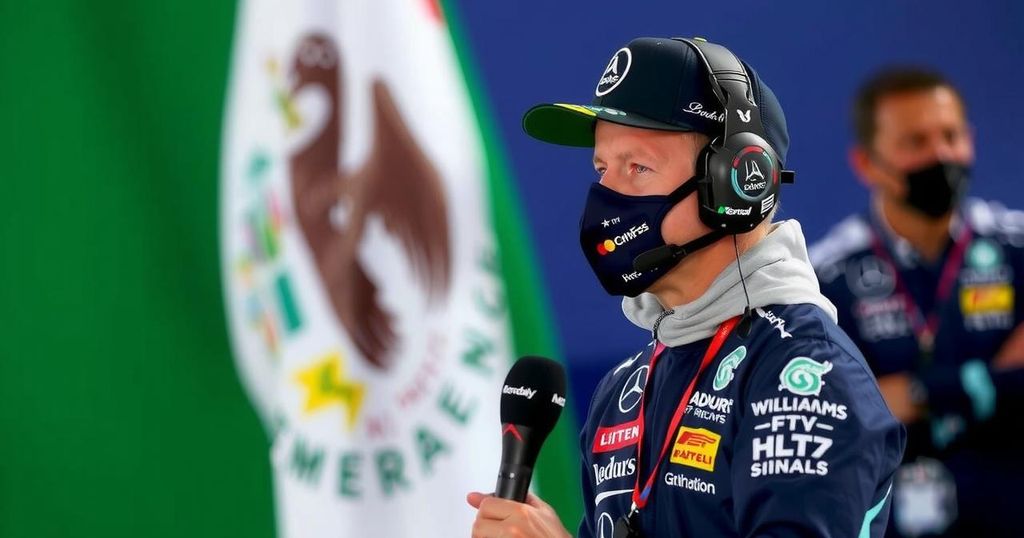Williams Racing Faces Million-Dollar Repairs Due to Recent Crashes

Williams Racing’s team principal, James Vowles, revealed that the repair costs for cars after crashes in Mexico and Brazil have reached millions. Notable incidents included multiple accidents during these races, causing significant logistical and financial strains as the team prepares for the Las Vegas Grand Prix. Vowles emphasized the team’s efforts to recover but also expressed concerns regarding the potential impact on future operations under cost cap regulations.
James Vowles, the team principal of Williams Racing, disclosed that the repair costs for the FW46 F1 cars have surged into the millions following extensive damage incurred during the recent race weekends in Mexico and Brazil. This unprecedented financial burden is attributed to five notable accidents involving both Alex Albon and interim driver Franco Colapinto, resulting in significant logistical challenges as the team prepares for the Las Vegas Grand Prix.
Alex Albon first struck trouble in the practice session in Mexico and later collided with competitor Yuki Tsunoda during the race. While the Brazilian GP proved to be more challenging, Albon could not participate due to a severe crash during qualifying. Colapinto also faced misfortune, experiencing crashes that halted both qualifiers and the main event in São Paulo. In an interview with ESPN, Vowles elaborated on the financial implications of these incidents, stating, “You are into the millions — less than 10 but more than three. It’s big numbers when you calculate where we are at the moment.”
The sheer extent of the damage was unparalleled, with the team losing crucial components including multiple front wings and gearboxes, which underscored the necessity of their repair efforts. Vowles commended his mechanics for their relentless dedication amidst a parts shortage, asserting, “What I’m proud of is…the team rose up stronger than it was before…and wanted to come here and prove to the world that we are still here and fight for everything we can fight until the end of the championship.”
However, as Vowles pointed out, the repercussions of these accidents extend into future seasons due to the constraints of the cost cap. He expressed concern over having an adequate inventory of spare parts and outlined the need for prudent resource allocation as the team approaches the final races of the season. Overall, the challenges posed by these crashes will potentially compromise seasons to come, thus amplifying the importance of strategic decision-making.
As the Williams team heads to the Las Vegas Grand Prix, they carry the hope of overcoming recent setbacks while striving to maintain their competitive edge in the championship race. The team’s commitment to resilience amid financial and operational challenges will be critical in their pursuit of success.
The context surrounding this revelation involves the significant financial and operational challenges faced by Williams Racing based on their performances in recent F1 races. The costs of repairs stem from multiple crashes by their drivers over consecutive race weekends, representing a unique situation in the sport. Team principal James Vowles highlights the historic financial implications of these incidents, reflecting broader themes in the F1 landscape regarding the balance between performance, cost management, and logistical execution in high-stakes competition.
In conclusion, Williams Racing is navigating a challenging phase characterized by extensive repair costs resulting from several driver crashes in Mexico and Brazil. Team principal James Vowles has highlighted the strain this places on the team’s resources, not only affecting current operations but also threatening future investments due to cost cap limitations. The resilience and commitment demonstrated by the team are pivotal as they endeavor to maintain their competitive stature in the ongoing championship.
Original Source: www.si.com





